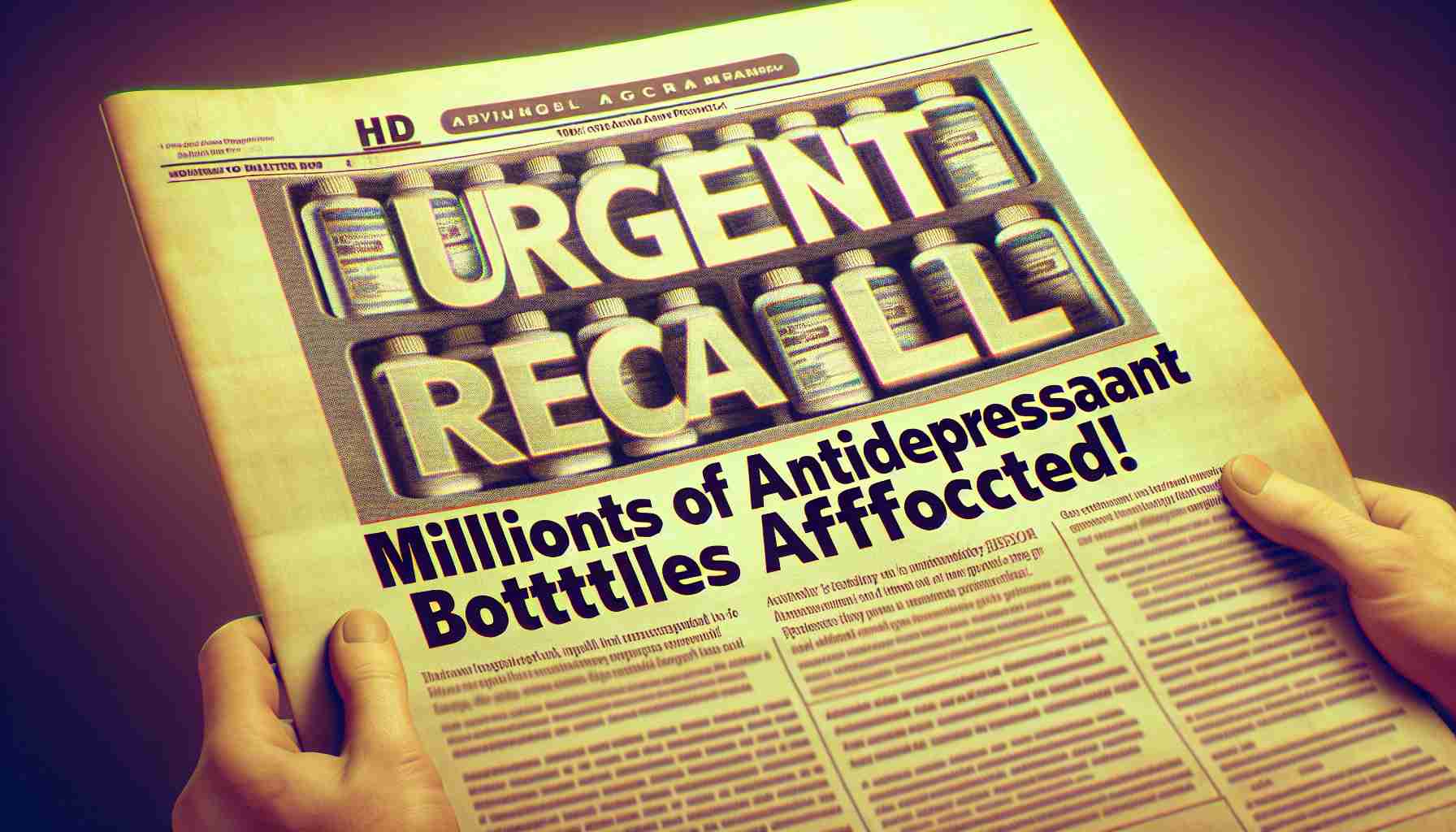Major Health Alert
A substantial recall has occurred involving **233,003 bottles** of the antidepressant **Duloxetine** throughout the United States due to fears of contamination with a **potentially cancer-causing** substance. On **November 19**, **Rising Pharmaceuticals** initiated this voluntary recall, which the **FDA** has classified as a **Class II** risk, indicating serious health risks from exposure.
Duloxetine is widely prescribed to treat **major depressive disorder**, **generalized anxiety disorder**, and **chronic pain conditions**. However, specific batches have revealed contamination with **N-nitroso-duloxetine**, a harmful impurity exceeding the FDA’s interim safety limits. This raises concerns, as long-term exposure to such nitrosamines can increase cancer risk.
The **Class II** recall signifies the potential for temporary or reversible adverse health consequences, although serious effects are considered rare. Recently, other products, including foods, faced similar recalls due to labeling issues or contamination fears.
Affected Duloxetine products include different bottle sizes with specific **lot numbers** and **expiry dates**. Patients taking this medication should verify their prescriptions against the recall list and consult their healthcare providers if they possess any potentially contaminated bottles.
In conclusion, safety must come first. If you have Duloxetine in your home, check its lot number immediately to ensure your well-being. Stay informed and take action promptly.
Immediate Action Required: Duloxetine Recall Impacts Health and Safety
### Overview of the Duloxetine Recall
A significant health alert has been issued regarding the recall of **233,003 bottles** of the antidepressant **Duloxetine** in the United States, initiated by **Rising Pharmaceuticals** on **November 19**. This recall stems from contamination concerns related to a potentially carcinogenic substance known as **N-nitroso-duloxetine**, which exceeds safety limits set by the **FDA**. Classified as a **Class II** risk, this recall highlights serious health risks associated with exposure to contaminated medications.
### What Is Duloxetine?
Duloxetine is commonly prescribed for several mental health and chronic pain conditions, including:
– **Major Depressive Disorder**
– **Generalized Anxiety Disorder**
– **Chronic Pain Conditions**, such as fibromyalgia and diabetic neuropathy
### Health Risks Associated with Contamination
The presence of nitrosamines, such as N-nitroso-duloxetine, raises alarms since long-term exposure to such impurities can elevate cancer risks. While the FDA categorizes this recall as Class II—indicating that while serious adverse health effects are rare, they are still possible—it’s crucial for consumers to take the recall seriously.
### Affected Products
The recall affects specific batches of Duloxetine with defined **lot numbers** and **expiry dates**. Patients who use this medication should:
1. Check the lot number against the FDA’s recall list.
2. Consult their healthcare providers for guidance if they possess any bottles included in the recall.
### How to Get More Information
For comprehensive details on the affected lot numbers and further instructions, individuals are encouraged to visit the FDA’s official site for updates. It’s essential to stay informed about any developments concerning drug recalls to ensure personal health safety.
### Pros and Cons of Duloxetine
**Pros:**
– Effectively treats multiple mental health disorders.
– Can alleviate certain chronic pain conditions.
– Generally well-tolerated with manageable side effects for many users.
**Cons:**
– Risk of contamination in recent batches.
– Possible side effects, including nausea, sleepiness, and dizziness.
– Withdrawal symptoms can occur if discontinued suddenly.
### Consumer Actions and Recommendations
In light of this recall, patients should:
– **Verify Prescription**: Immediately check the lot number and expiry date of their Duloxetine bottles.
– **Consult Healthcare Professionals**: Discuss any concerns or alternative treatment options if affected.
– **Report Side Effects**: Notify healthcare providers of any unusual symptoms experienced during the course of treatment.
### Future Trends in Pharmaceutical Safety
This incident underscores the increasing scrutiny of pharmaceutical manufacturing processes to ensure safety and efficacy. With growing health consciousness, patients are becoming more proactive in verifying the safety of medications and advocating for transparent labeling and recalls.
For more information on drug safety and recalls, check out the FDA’s official website.
Stay vigilant and prioritize your health by regularly reviewing medication safety updates.


